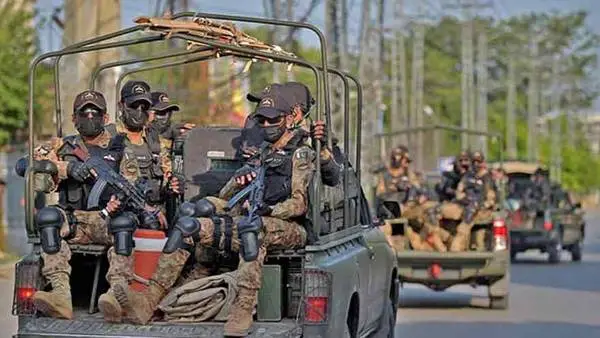On August 14, 2025, Balochistan’s security forces foiled a sophisticated suicide bombing operation targeting Independence Day celebrations, demonstrating an unprecedented level of intelligence coordination and rapid response. Chief Minister Sarfraz Bugti and the acting Inspector General of Police revealed that Prof. Dr. Osman Qazi, a Grade-18 lecturer at BUITEMS, was arrested in Quetta on August 12 for his central role in facilitating the banned Balochistan Liberation Army (BLA). This high-profile arrest underscores the evolving tactics of extremist networks and highlights the cross-border dimensions of modern insurgency.
Terrorism and Regional Instigators
During the press briefing, CM Bugti directly accused external actors of stoking unrest in Balochistan. He asserted that elements based in neighboring India have systematically supported separatist networks by providing financial resources, encrypted communications, and strategic direction aimed at destabilizing Pakistan’s western provinces. This claim echoes longstanding allegations by Islamabad that New Delhi exploits Baloch grievances to foment violence and derail federal development initiatives.
The Arrest of Dr. Osman Qazi
Prof. Dr. Osman Qazi, who holds an MPhil and PhD in Pakistan Studies, was identified as a key facilitator within the BLA’s Majeed Brigade. Security agencies traced encrypted Telegram discussions to his account, revealing that he recruited operatives, arranged safe houses, and procured weapons. In his recorded confession, Qazi admitted sheltering wounded field commander Sher Dil after clashes in Kalat and concealing a suicide bomber at Quetta Railway Station one day before the planned attack, which previously claimed over 30 lives. He also detailed supplying a pistol to a female operative who carried out targeted killings of security personnel, and harboring militant “Nauman” (alias “Feroz”) for eight days before his deployment in the foiled plot.
Challenging the Deprivation Narrative
Chief Minister Bugti highlighted Qazi’s privileged background to dispel the notion that insurgency in Balochistan stems solely from poverty or political marginalization. He noted that Qazi’s immediate family members, including his mother and wife, are government employees and receive all associated benefits, illustrating that ideological extremism often thrives independent of socioeconomic status. By drawing attention to Qazi’s academic achievements and stable employment, Bugti sought to delegitimize separatist propaganda and encourage citizens to reject divisive narratives.
Intelligence Breakthrough and Counterterrorism Strategy
Security officials credited a multidimensional intelligence network for uncovering the plot. Human intelligence sources alerted authorities to unusual financial transfers and suspicious travel patterns linked to Qazi. Cyber units intercepted encrypted messages outlining attack plans, enabling law enforcement to conduct simultaneous raids across Quetta. The rapid detention of suspects and seizure of weapons caches showcased improved interagency cooperation between military, police, and intelligence services.
Government Measures to Prevent Radicalization
In response to this incident, the Balochistan government announced several preventive initiatives. A special cell within the Home Department has been established to monitor extremist activity in universities and colleges. Over two thousand government employees, including educators and administrative staff, have undergone security vetting to identify potential sympathizers. To foster constructive engagement, the province allocated one billion PKR in scholarships for Baloch students at Punjab University, offering an alternative to radical influences. Chief Minister Bugti also appealed to parents and community leaders to remain vigilant, urging them to report any signs of extremist indoctrination or recruitment.
Implications for Regional Stability
The dismantling of this terror cell just days before a national celebration highlights the persistent threat posed by insurgent groups in Balochistan. By exposing the network’s inner workings and its alleged connections to Indian intelligence, Pakistani authorities aim to rally domestic support and deter future external interference. The operation also serves as a cautionary tale for educational institutions, emphasizing the need for robust screening and awareness programs to prevent campus radicalization.
As investigations continue, authorities have indicated the possibility of further arrests. The case of Dr. Osman Qazi will likely become a focal point in the broader narrative of Pakistan’s counterterrorism campaign, illustrating both the sophistication of modern extremist networks and the critical importance of timely intelligence. Ultimately, the successful disruption of this plot reaffirms the state’s resolve to safeguard national sovereignty and underscores the collective responsibility of citizens in the fight against terrorism.


